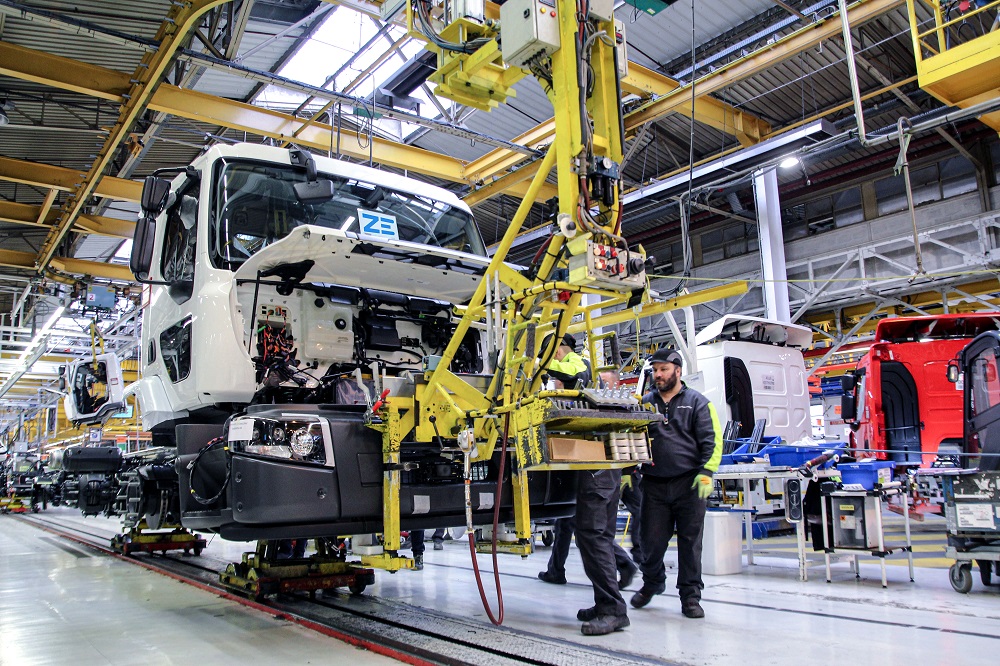
Renault Trucks starts serial production of its electric trucks
The serial production of Renault Trucks D and D Wide Z.E. Electric trucks is commencing in the constructor’s Normandy plant in Blainville-sur-Orne.
Electric trucks are now a reality for Renault Trucks, from both a commercial and industrial standpoint. In March 2020, the constructor is due to commence serial production of its D and D Wide Z.E. electric trucks in its Blainville-sur-Orne plant. This marks a decisive turning point in the transformation of urban mobility.
The serial production of Renault Trucks D and D Wide Z.E. Electric trucks is commencing in the constructor’s Normandy plant in Blainville-sur-Orne. The factory, which has been operating since 1957, is specialised in the production of medium-duty vehicles and truck cabins. 240 cabins are made every day and 72 distribution trucks are assembled. This is now where the constructor’s electric trucks are also being assembled.
A unit dedicated to electric trucks
Various facilities have been installed in the Blainville-sur-Orne industrial site to manufacture the electric models. Located next to the truck assembly line for the distribution range, the 18,000 m² Z.E. building is now entirely dedicated to technical operations relating to electric vehicles.
Technical procedures are performed upstream and downstream of the Renault Trucks D and D Wide Z.E. passing through the assembly line. This building is also used to store components; in particular a temperature-controlled area is dedicated to battery storage.
50 hours of work is required is to manufacture an electric truck
Manufacture starts one week prior to the electric trucks passing through the assembly line, with preliminary operations performed within the Z.E. building. Various subassemblies specific to all-electric vehicles (drive, engine, gearbox, modular power box, etc.) are assembled by skilled technicians. They are then transported to the assembly line in order to be mounted onto the vehicle.

The Renault Trucks D and D Wide Z.E. are assembled on the same line as the equivalent diesel models. At the end of the assembly line, the electric trucks are returned to the Z.E. building for the technicians to carry out additional technical operations and quality tests.
In total, 50 hours of work is required to manufacture an electric truck.
Renault Trucks predicts that electric vehicles will represent 10% of its sales volume by 2025.

